Chinchillas are adorable and fluffy little creatures that make great pets. However, like all pets, they can experience health issues from time to time. It is essential to know what health issues affect chinchillas so that you can take preventative measures to keep them healthy.
Choosing a breeder who focuses on health will help keep your chinchilla from inheriting genetic health problems, but there are some health problems that can’t be prevented.
In this article, we will discuss the most common health issues in chinchillas, preventive measures you can take, how to detect health issues, and when to seek professional help.
Common health issues in chinchillas

Here are some of the most common health issues that can affect chinchillas, including:
- Hypoglycemia
- Overheating and heat stroke
- Dental issues (overgrown or misaligned teeth)
- Digestive issues
- Respiratory infections
- Broken legs and limbs
- Prolapsed penis and fur rings (males)
- Urinary tract problems
- Fur chewing, matting or slipping
- Ringworm
- Bumblefoot
- Vitamin and mineral imbalances
Hypoglycemia

Hypoglycemia (low blood sugar) is a common issue that affects chinchillas. Chinchillas are strict herbivores and require a diet that is high in fibre and low in sugar. If their diet is deficient in fibre or too high in sugar, it can lead to hypoglycemia.
Chinchillas are active animals that require regular exercise. However, excessive exercise can cause their blood sugar levels to drop rapidly, leading to hypoglycemia.
Symptoms & Prevention
Symptoms of hypoglycemia
Hypoglycemia, or low blood sugar, is a serious condition that can occur in chinchillas. It can be caused by a variety of factors, including poor diet, stress, or a medical condition. If left untreated, hypoglycemia can be fatal for chinchillas. Here are some common symptoms of hypoglycemia in chinchillas:
- Lethargy
- Loss of appetite
- Tremors
- WeaknessSeizures
Quality chinchilla pellets should make up the majority of their diet, along with hay. Avoid giving your chinchilla sugary treats or fruits, vegetables, nuts, or seeds.
Avoid overexerting your chinchilla with excessive running or jumping, especially if they are not used to regular exercise. It is also a good idea to limit their out-of-cage exercise to a couple of times a week rather than daily.
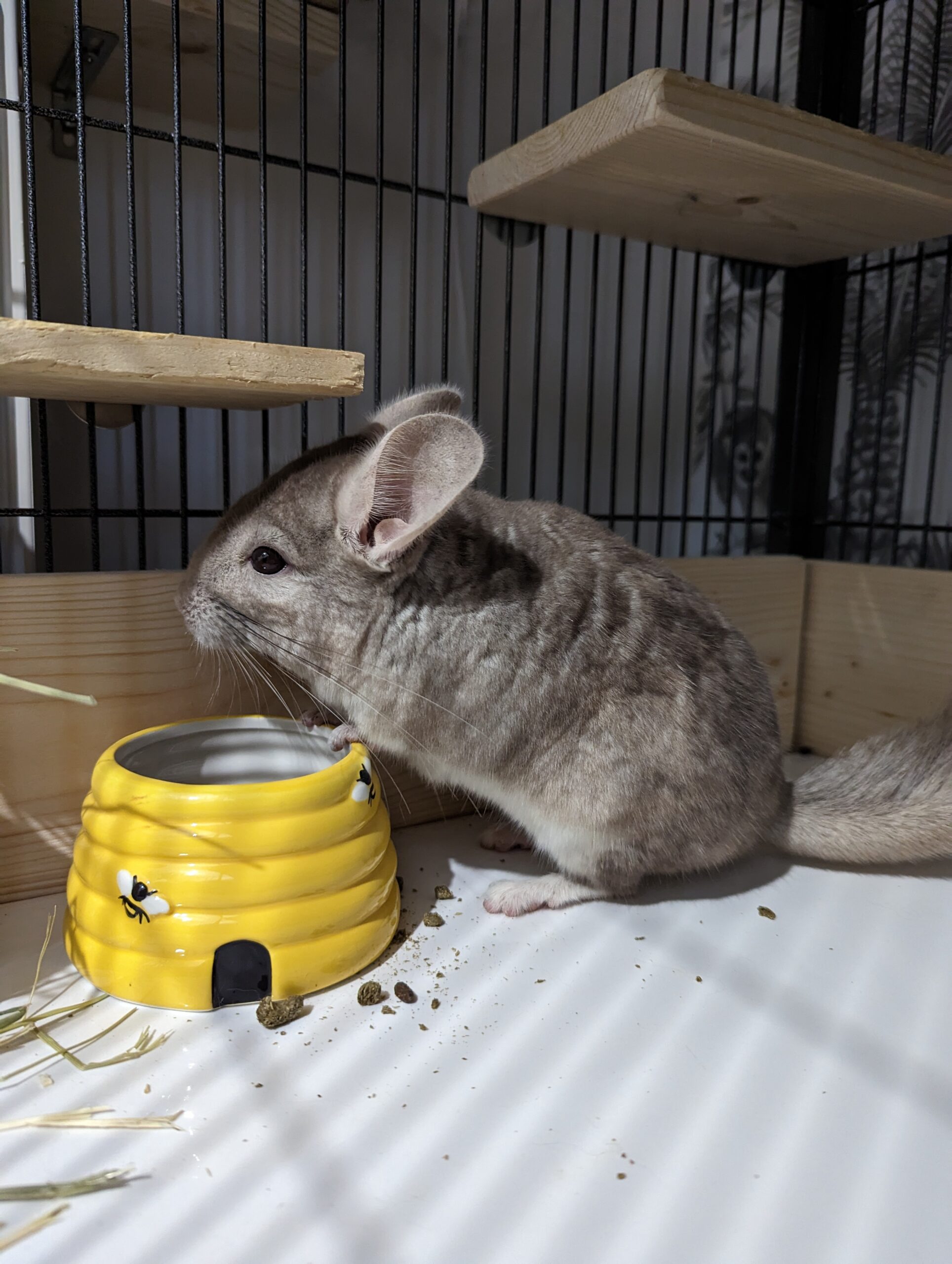
Overheating and heat stroke

Overheating and heat stroke are common in chinchillas, especially in warm weather or if their living environment is too hot. Chinchillas are native to the Andes Mountains, where temperatures are cool and dry, so they are not well adapted to hot and humid conditions.
Symptoms & Prevention
Symptoms of overheating and heat stroke
- Rapid or laboured breathing
- Red or blue-tinted gums
- Lethargy
- Weakness
- Seizures
- Dry mouth and nose
To prevent overheating and heat stroke, it’s important to keep your chinchilla’s living environment cool and well-ventilated. Avoid placing their cage in direct sunlight or near sources of heat, such as heaters or appliances. Provide them with a cool and comfortable resting place, such as a tile or marble slab, to help regulate their body temperature.
If you suspect that your chinchilla is overheating or experiencing heat stroke, immediately move it to a cool, shaded area and provide it with fresh water to drink. You can also use a damp cloth to cool their body temperature; however, avoid immersing them in water or using ice packs, as this can cause shock or hypothermia.
In severe cases of heat stroke, it’s important to seek professional help immediately. Your veterinarian may need to administer fluids, oxygen, or medication to manage your chinchilla’s condition and prevent further complications.
Dental problems

Dental problems are a common health issue in chinchillas. They have teeth that grow continuously throughout their lives, and if they don’t wear them down through regular chewing, they can become overgrown and cause serious health issues.
Some of the most common dental problems in chinchillas include overgrown teeth, malocclusion, and abscesses. Causes of dental problems can include a diet that is high in sugar or low in fibre, a lack of proper chewing opportunities, and genetics.
Symptoms & Prevention
Symptoms of dental problems
- Difficulty eating
- Drooling
- Weight loss
- Bad breath
- Swollen or bleeding gums
If you notice any of these symptoms in your chinchilla, it’s important to take it to a veterinarian as soon as possible for a check-up. Dental problems can be serious and can lead to other health issues if left untreated. Early detection and treatment are crucial.
Prevent dental problems with good dental hygiene and a healthy diet. Chinchillas have constantly growing teeth, and they need to chew on hard objects to wear them down. Provide chew toys made of wood, hay, or other safe materials.
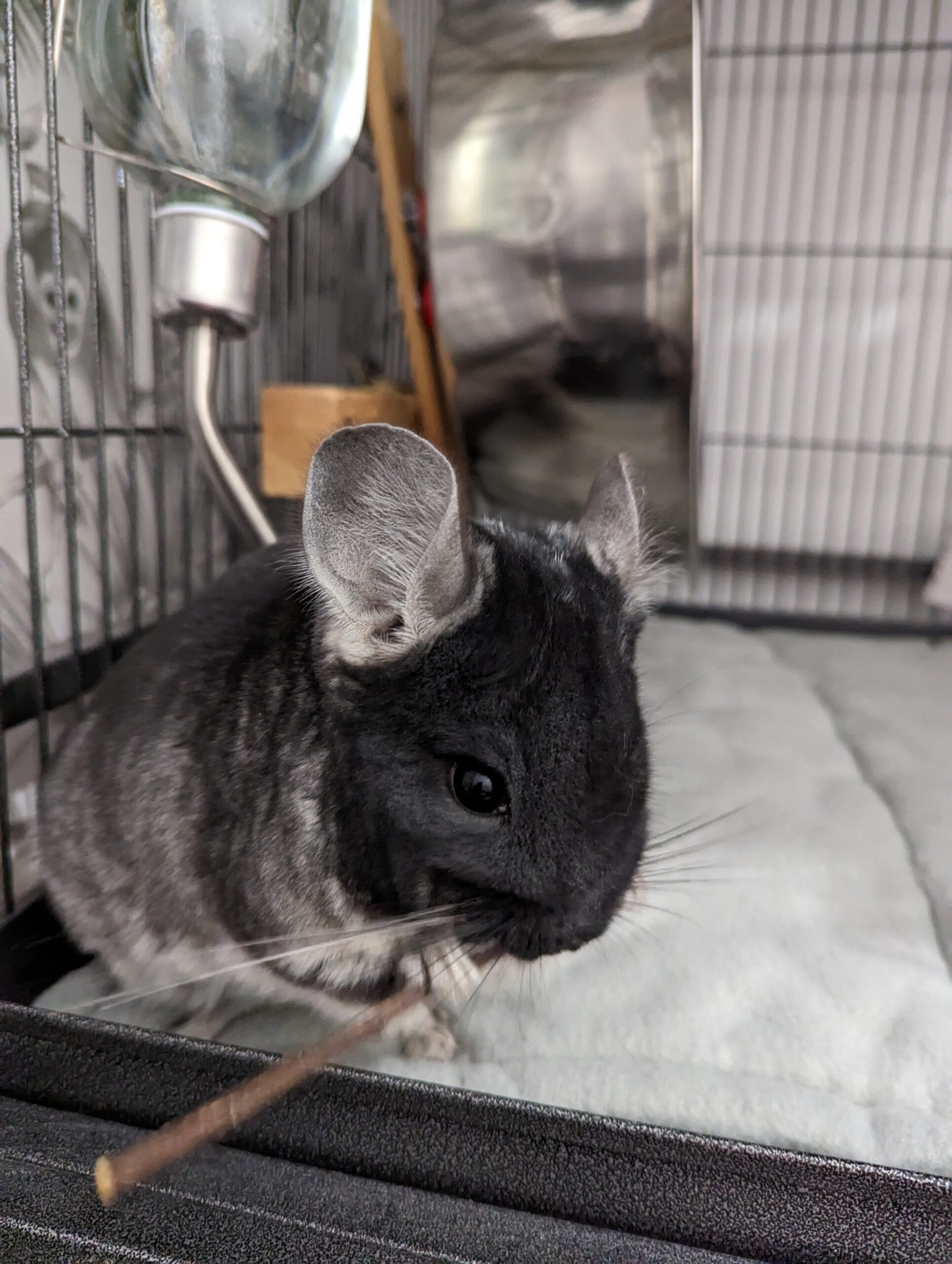
Treatment for dental problems
Treatment options for dental problems may include dental filing or trimming, antibiotics, or even tooth removal in severe cases.
Digestive problems

Chinchillas have a delicate digestive system, and any changes in their diet or environment can cause digestive problems. The most common digestive problems in chinchillas include diarrhoea, constipation, bloating, and gastrointestinal stasis. Causes of digestive problems can include an improper diet, stress, dehydration, and bacterial infections.
Symptoms & Prevention
Symptoms of digestive problems
- Diarrhoea or loose stools
- Decreased or loss of appetite
- Weight loss or failure to gain weight
- Abdominal pain or discomfort
- Bloating or distended abdomen
- Reduced or absent faecal output
- Presence of blood in the stool
If you notice any of these symptoms in your chinchilla, it’s important to seek professional help from a veterinarian as soon as possible. Digestive problems can be serious and can quickly lead to dehydration and other complications if left untreated.
Your veterinarian can perform a physical examination and diagnostic tests such as faecal analysis or bloodwork to determine the underlying cause of the digestive problem and provide appropriate treatment.
To prevent digestive problems in chinchillas, it’s important to provide a healthy and balanced diet, good hygiene, and regular veterinary check-ups.
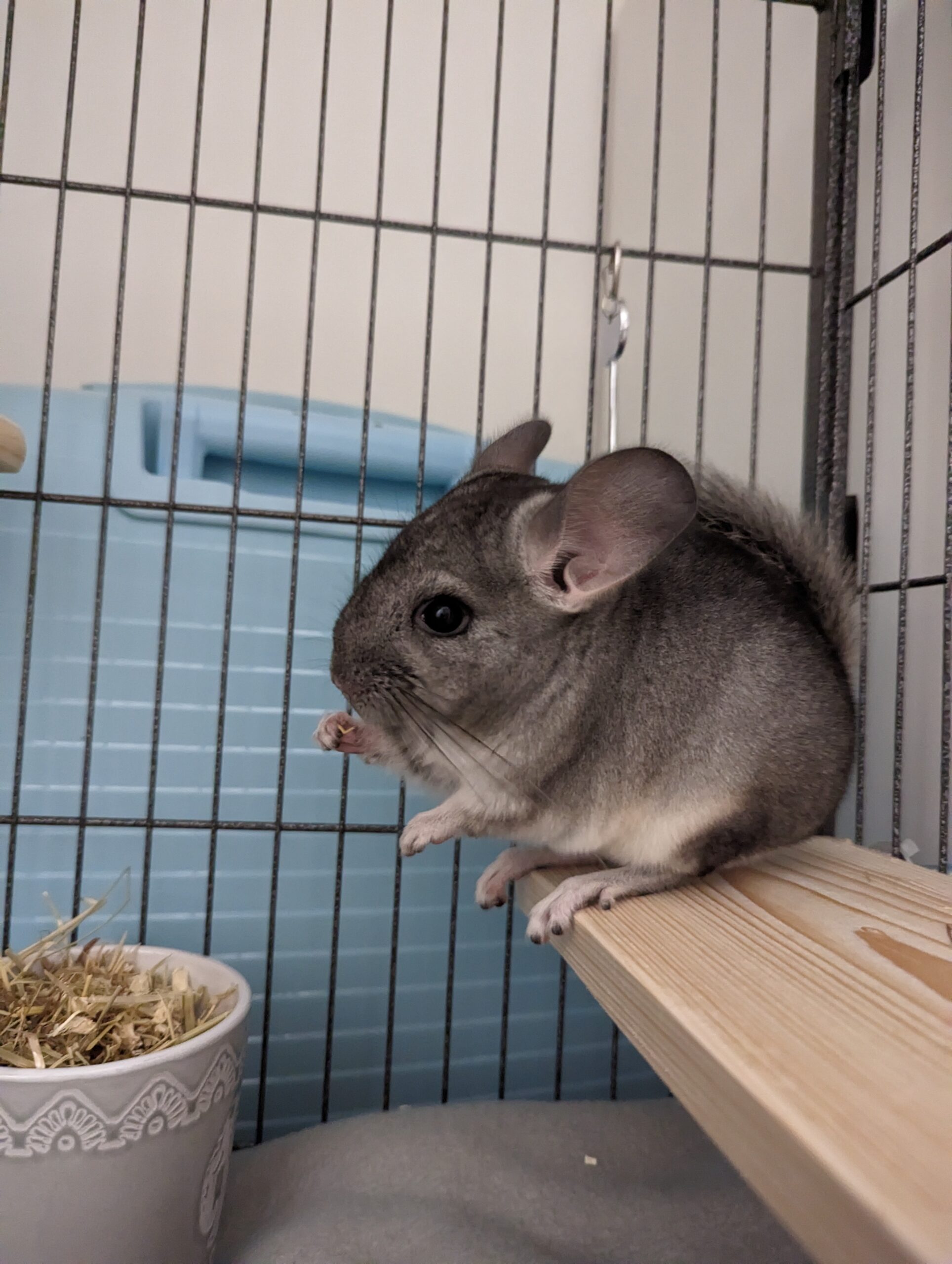
Treatment for digestive problems
Treatment for digestive problems may include changes to your chinchilla’s diet, medications to treat infections and supportive care such as fluid therapy or probiotics to help restore gut health. In severe cases, hospitalisation may be necessary to provide intensive care for your chinchilla.
Respiratory problems

Respiratory problems are another common health issue in chinchillas. They have sensitive respiratory systems and can be susceptible to infections or irritants in their environment. The most common respiratory problems in chinchillas include pneumonia, rhinitis, and asthma. Causes of respiratory problems can include poor air quality, exposure to cigarette smoke or other irritants, and bacterial infections.
Symptoms & Prevention
Symptoms of respiratory problems
- Laboured breathing or wheezing
- Sneezing or coughing
- Discharge from the nose or eyes
- Loss of appetite or weight loss
- Lethargy or decreased activity level
- Noisy or open-mouthed breathing
- Reduced grooming or dishevelled appearance
To prevent respiratory problems in chinchillas, it’s important to provide a clean and well-ventilated living environment, avoid exposure to irritants, and maintain good hygiene practices.
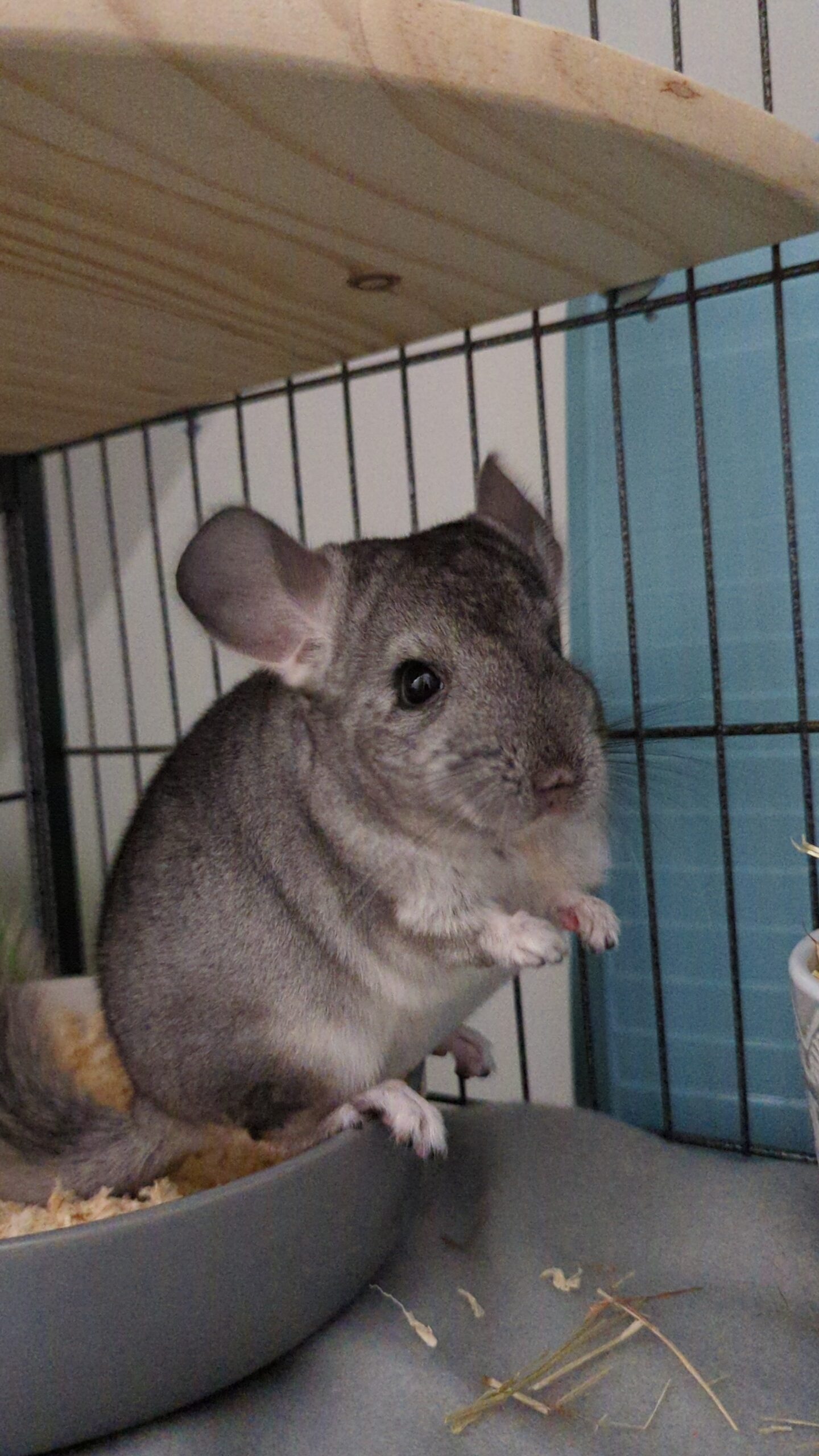
Treatment for respiratory problems
Treatment options for respiratory problems may include antibiotics, nebulization, and oxygen therapy.
Broken legs and limbs

Broken legs and limbs are another common health issue that can affect chinchillas. These small animals have delicate bones that can easily break, especially if they fall from a high place or get caught in their cage.
Symptoms & Prevention
Symptoms of a broken leg or limb
- Limping or reluctance to move around
- Swelling or bruising around the affected limb
- Inability to put weight on the affected limb
- Pain or discomfort when touched or handled
- Abnormal positioning or bending of the affected limb
- Loss of appetite or decreased activity level
To prevent broken legs and limbs, make sure your chinchilla’s living environment is safe and secure. Avoid placing their cage in high places or near edges where they could fall. Provide them with a soft and safe bedding material, such as fleece or paper-based bedding, to cushion any falls or jumps. Additionally, avoid handling your chinchilla roughly or pulling on its limbs, as this can cause injury.
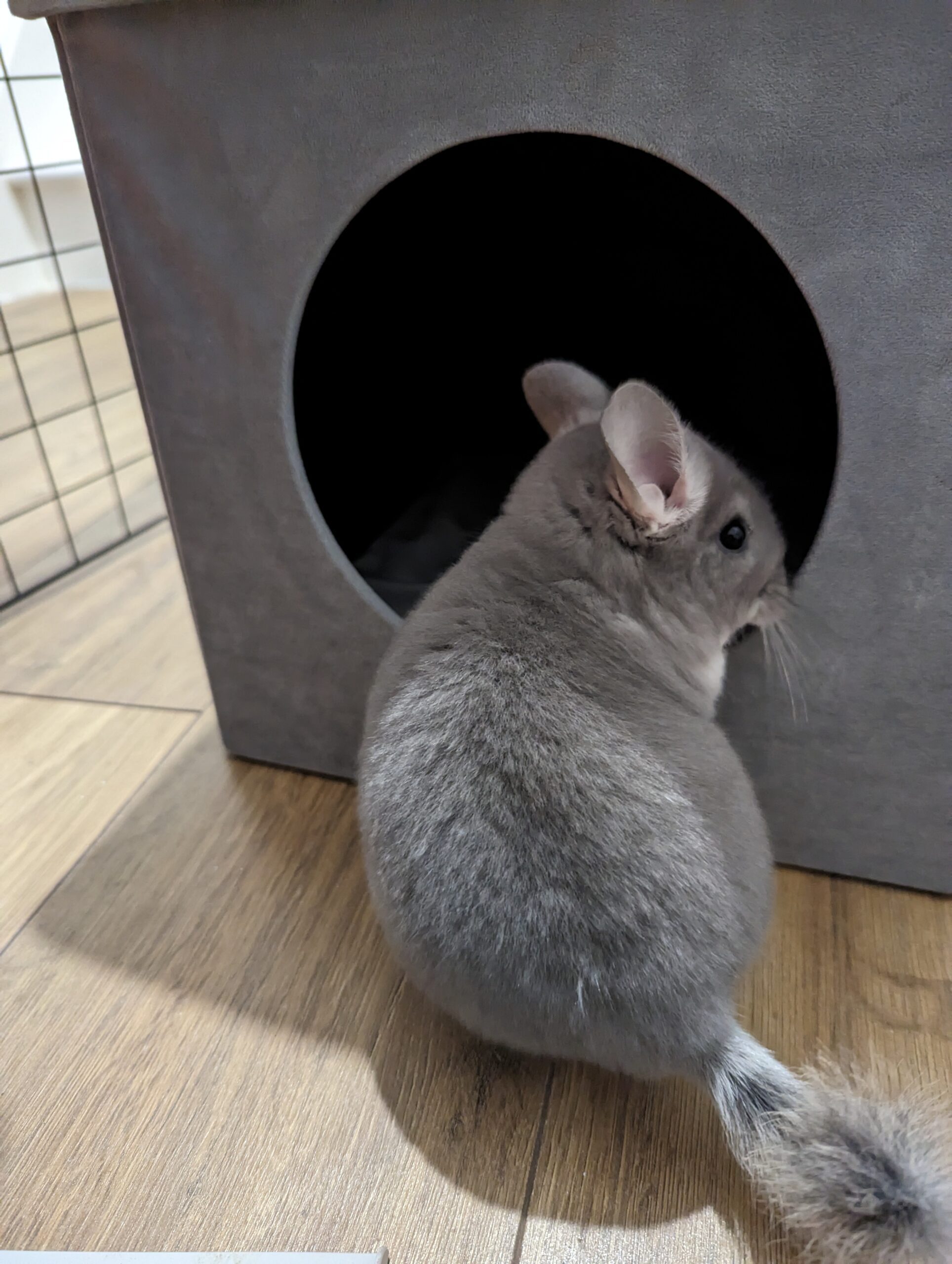
Treatment for a broken leg or limb
If you suspect that your chinchilla has a broken leg or limb, seek professional help immediately. Your veterinarian may need to immobilise the affected limb and prescribe pain medication to manage your chinchilla’s discomfort. In some cases, surgery may be necessary to repair the broken bone.
Prolapsed penis and fur rings

Prolapsed penises and fur rings are two other health issues that affect male chinchillas. A prolapsed penis occurs when the penis becomes trapped outside of the sheath and cannot retract back in. This can be caused by excessive grooming, trauma, or infection. If left untreated, it can lead to infection and even death.
Fur rings, on the other hand, occur when the fur around the chinchilla’s genitals becomes tangled and forms a tight ring around the base of the penis. This can cause constriction and lead to infection and even tissue death.
Symptoms & Prevention
Symptoms of a prolapsed penis
- A red, swollen, and protruding penis that cannot retract back in
- Discomfort or pain when urinating or defecating
- Excessive grooming of the genital area
- Signs of infection, such as discharge or foul odour
Symptoms of fur rings
- Swelling, redness, or discharge around the genital area
- Excessive grooming or licking of the genital area
- Signs of pain or discomfort when urinating or defecating
- Lethargy or loss of appetite
To prevent prolapsed penis and fur rings in chinchillas, it’s important to provide them with a clean and dry living environment. Male chinchillas should be checked regularly for any signs of swelling or discharge around the genital area. If you notice any signs of a prolapsed penis or fur ring, seek professional help immediately.
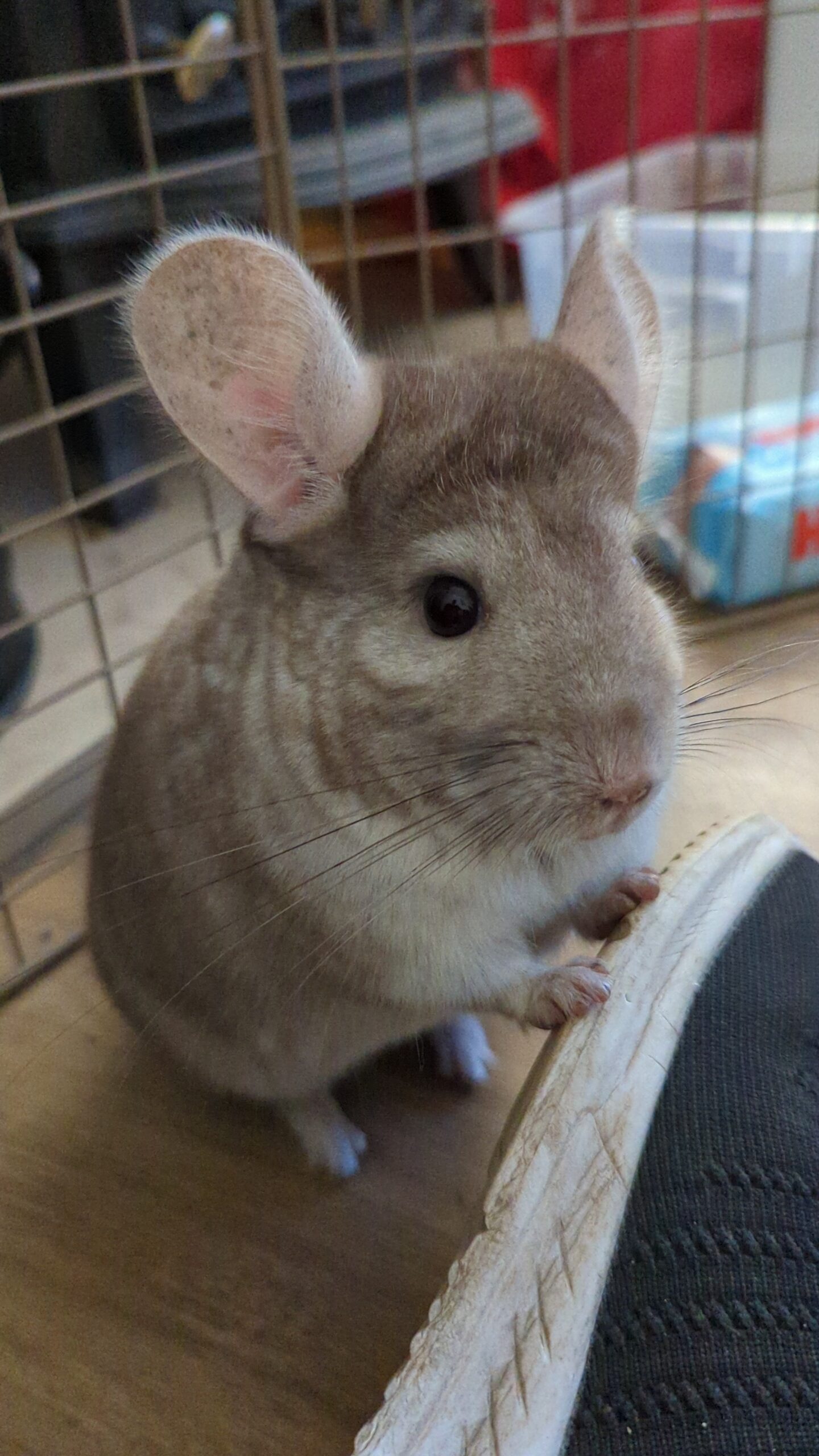
Treatment for prolapsed penis & fur rings
Treatment for a prolapsed penis may involve manual retraction or surgical intervention. In some cases, antibiotics may be necessary to treat any associated infection. Fur rings can be removed with small scissors, but it’s important to seek professional help to avoid injuring your chinchilla.
Urinary tract problems

Urinary tract problems can occur in chinchillas and can be a serious health issue if left untreated. Some of the common urinary tract problems in chinchillas include urinary tract infections (UTIs), bladder stones, and cystitis.
Symptoms & Prevention
Symptoms of urinary tract problems
- Frequent urination
- Difficulty urinating
- Blood in the urine
- Decreased appetite
- Lethargy
- Abdominal pain
If you notice any of these symptoms in your chinchilla, it is important to seek veterinary care immediately.
To prevent urinary tract problems in chinchillas, it is important to provide them with a balanced diet that is high in fibre and low in calcium. Fresh water should also be provided at all times, and the chinchilla’s cage should be kept clean and dry to prevent bacterial growth.
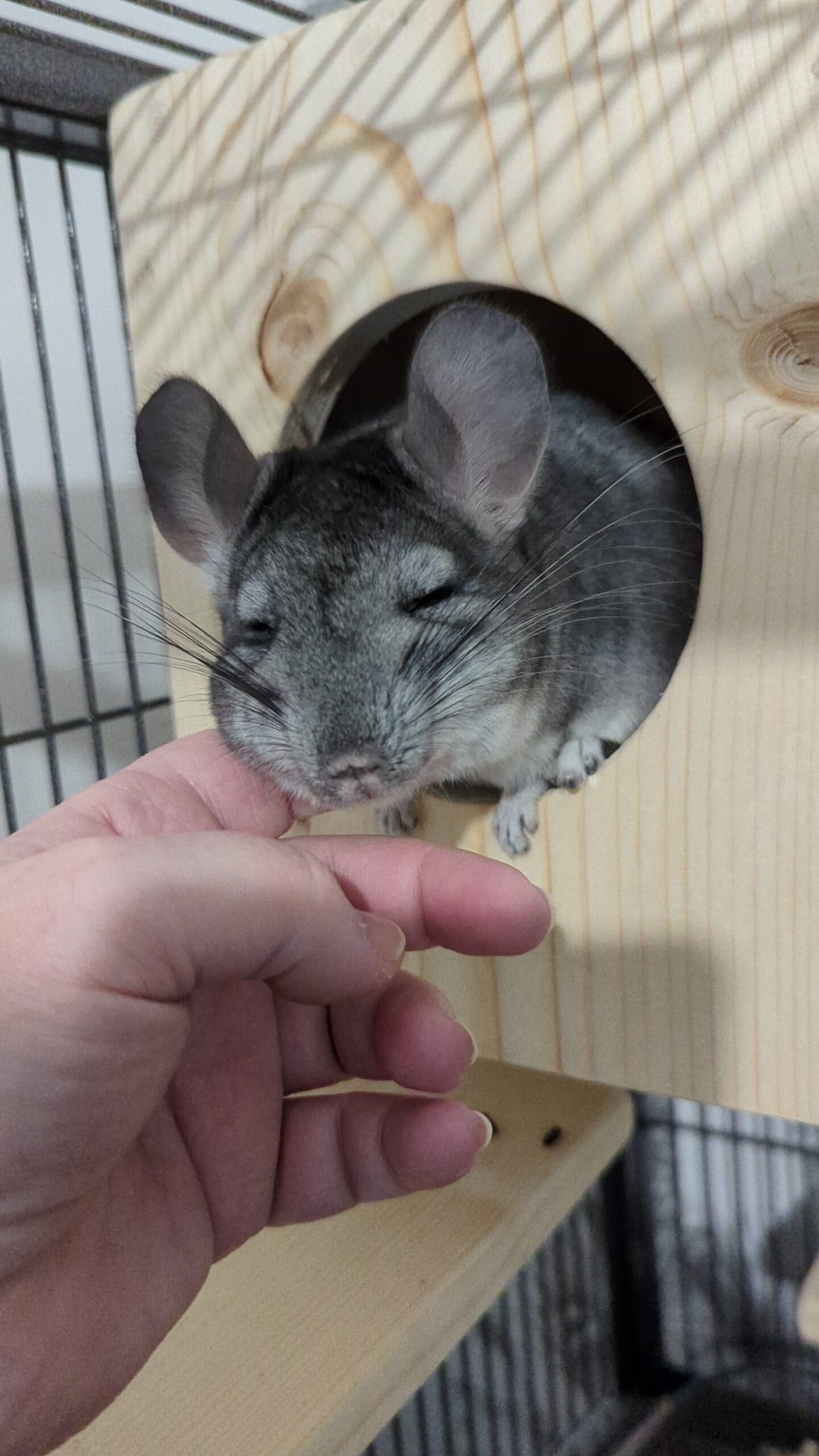
Treatment for urinary tract problems
- If your chinchilla is diagnosed with a UTI, your vet will likely prescribe antibiotics. It’s important to complete the full course of medication even if your chinchilla appears to be feeling better before the medication is finished.
- Bladder stones may need to be removed surgically by a veterinarian. In some cases, a special diet may be recommended to help dissolve smaller stones.
- Treatment for cystitis may include pain medication, supportive care, and addressing the underlying cause of the condition, such as a bacterial infection.
It’s important to follow your veterinarian’s advice regarding treatment and medication for your chinchilla’s urinary tract problems. Your vet may also recommend follow-up appointments or additional testing to monitor your chinchilla’s condition and ensure that treatment is effective.
Skin problems

Chinchillas have sensitive skin that can be susceptible to infections. The most common skin problems in chinchillas include fur loss, dermatitis, and ringworm. Causes of skin problems can include poor hygiene and fungal infections.
Symptoms & Prevention
Symptoms of skin problems
- Itching, scratching, or excessive grooming
- Hair loss or thinning fur
- Scabs or sores on the skin
- Redness or inflammation of the skin
- Crusty or scaly patches on the skin
- Presence of parasites such as mites or fleas
- Oily or greasy skin
It is important to maintain good hygiene and keep the chinchilla’s cage clean and dry to prevent further skin problems.
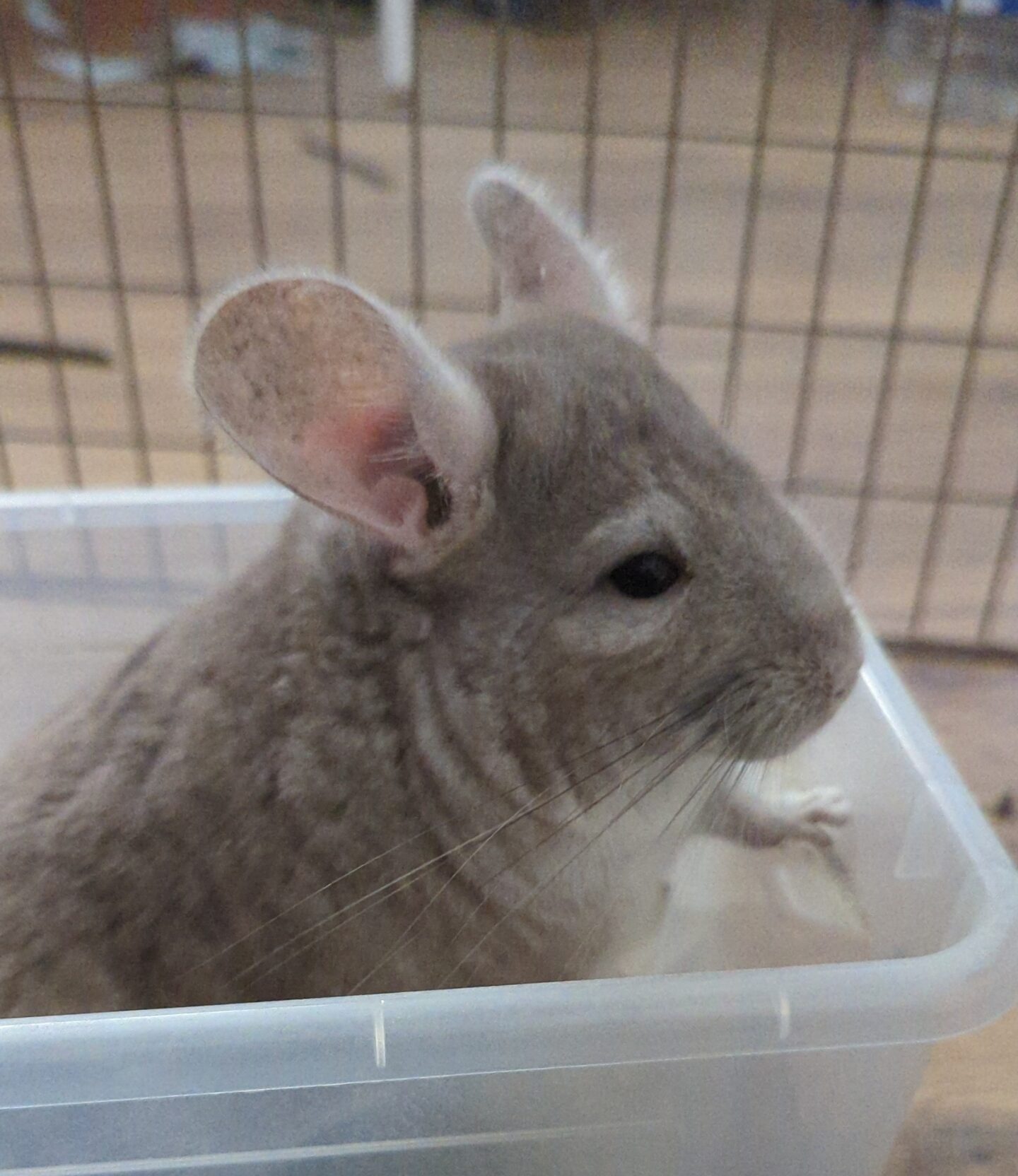
Treatment for skin problems
Treatment options for skin problems may include medicated ointment, topical creams, and antibiotics. It’s important to follow your veterinarian’s advice regarding treatment and medication for your chinchilla’s skin problems.
Fur chewing, matting, or slipping

Fur chewing, matting, or slipping can be common problems in chinchillas and can be caused by a variety of factors, including stress, boredom, diet, dental issues, and skin irritations.
Symptoms & Prevention
Fur chewing
Fur chewing can be a sign of stress or boredom. To help reduce stress, ensure that your chinchilla has a safe and comfortable living environment, with plenty of toys and hiding places to keep them entertained. Providing plenty of hay can help keep their teeth healthy and reduce the urge to chew on fur.
Matting
Matting can occur if your chinchilla’s fur becomes tangled or dirty. It may be a sign of dental problems or skin irritations. Regular dust baths can help prevent matting, and if necessary, mats can be carefully cut out with scissors. Be careful not to cut the skin or fur too close to the skin.
Slipping fur
Slipping fur can be a sign of poor nutrition or an underlying health issue, such as a skin infection. Ensure that your chinchilla is getting a balanced diet with plenty of hay. In some cases, supplements or dietary changes may be recommended to improve coat health.
It’s important to monitor your chinchilla’s fur and overall health closely. Regular dust baths and good hygiene can help prevent fur problems.
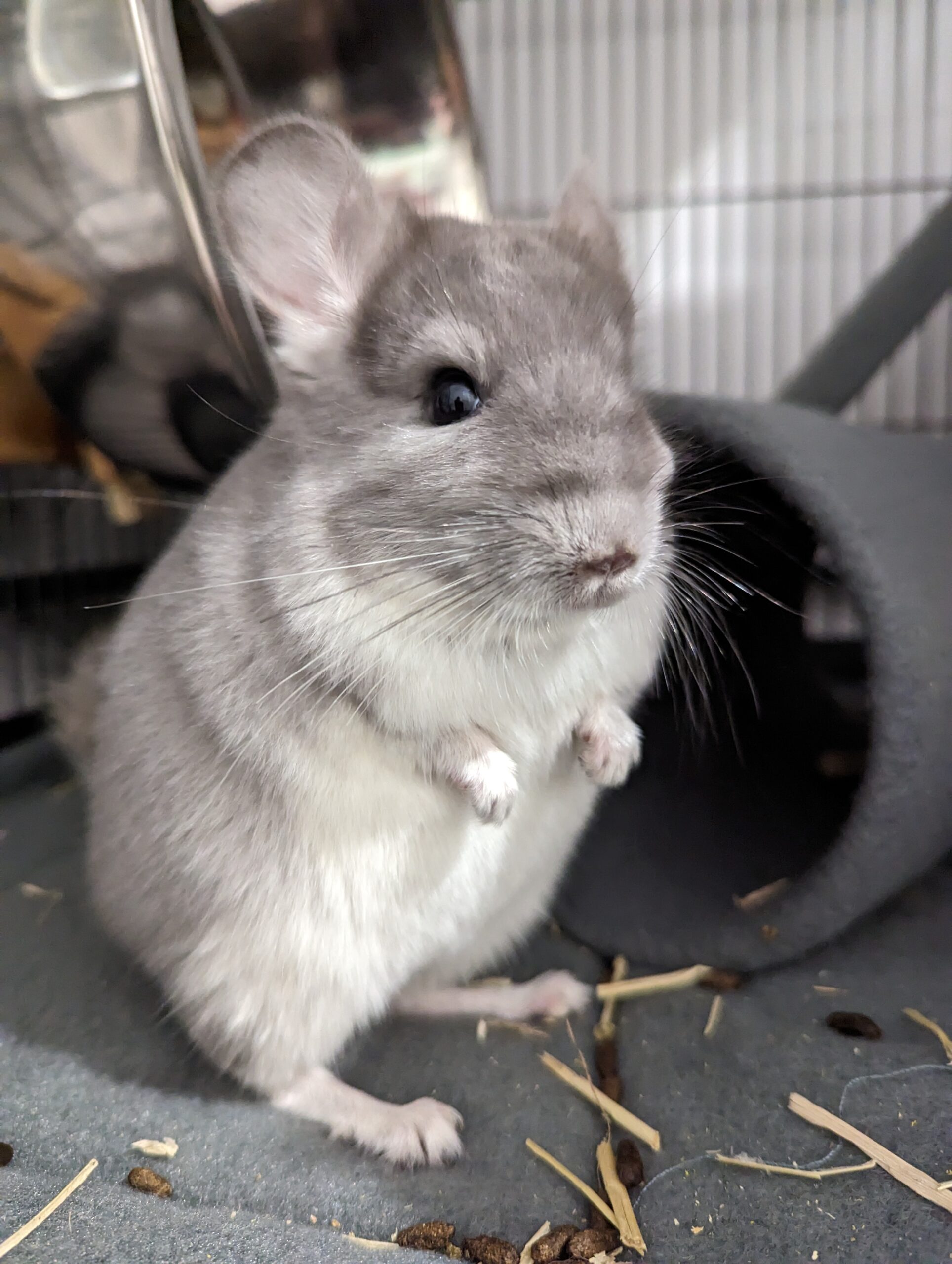
Ringworm

Ringworm is a fungal infection that can affect chinchillas, and it can cause hair loss, itching, and redness on the skin. If you suspect that your chinchilla has ringworm, it’s important to seek veterinary care promptly to prevent the infection from spreading to other animals or people in your household.
Symptoms & Prevention
Symptoms of ringworm
- Hair loss
- Crusty skin
- Itching
- Redness or inflammation
- Skin lesions
To prevent ringworm from recurring, it’s important to maintain good hygiene and keep your chinchilla’s living environment clean and dry. Regularly disinfect your chinchilla’s living space and provide plenty of fresh bedding. You can also use a preventative powder in their dust bath.
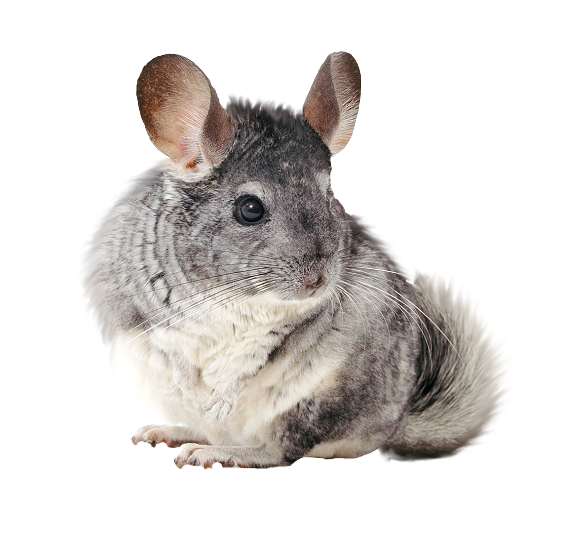
Treatment for ringworm
Treatments for ringworm include antifungal medication in the form of a topical cream, oral medication, or both. Follow your vet’s instructions carefully when administering the medication, and be sure to finish the course of treatment.
If you have multiple chinchillas, it’s important to isolate the infected chinchilla to prevent the infection from spreading to other animals. You will need to wear gloves when handling the infected chinchilla to stop it from spreading.
Remove all wooden items from the cage and dispose of them. Thoroughly clean the cage, bedding, toys, and any other items they come into contact with. Use a disinfectant that is effective against fungal infections, such as a bleach solution, and ensure that everything is completely dry before reintroducing your chinchilla to their living space.
Bumblefoot

Bumblefoot is a bacterial infection that can occur due to unsanitary conditions, often resulting from fleece or shavings left for too long between cleanings. Lots of people think that bumblefoot is caused by wire bottom cages, but this is a misconception, as a wire bottom cage can actually help prevent bumblefoot, as it stops chinchillas from standing in their urine. It also encourages the formation of natural calluses on their feet.
Symptoms & Prevention
Symptoms of bumblefoot
- Redness, swelling, and/or sores on the bottom of the feet
- Pain and limping or reluctance to move
- Decreased appetite and lethargy
To prevent bumblefoot, it is essential to maintain a clean and dry living environment. Regularly clean and sanitise the cage, including the floor, walls, and accessories. Opt for materials such as hay, pine, or aspen shavings and change them regularly to avoid bacterial overgrowth.
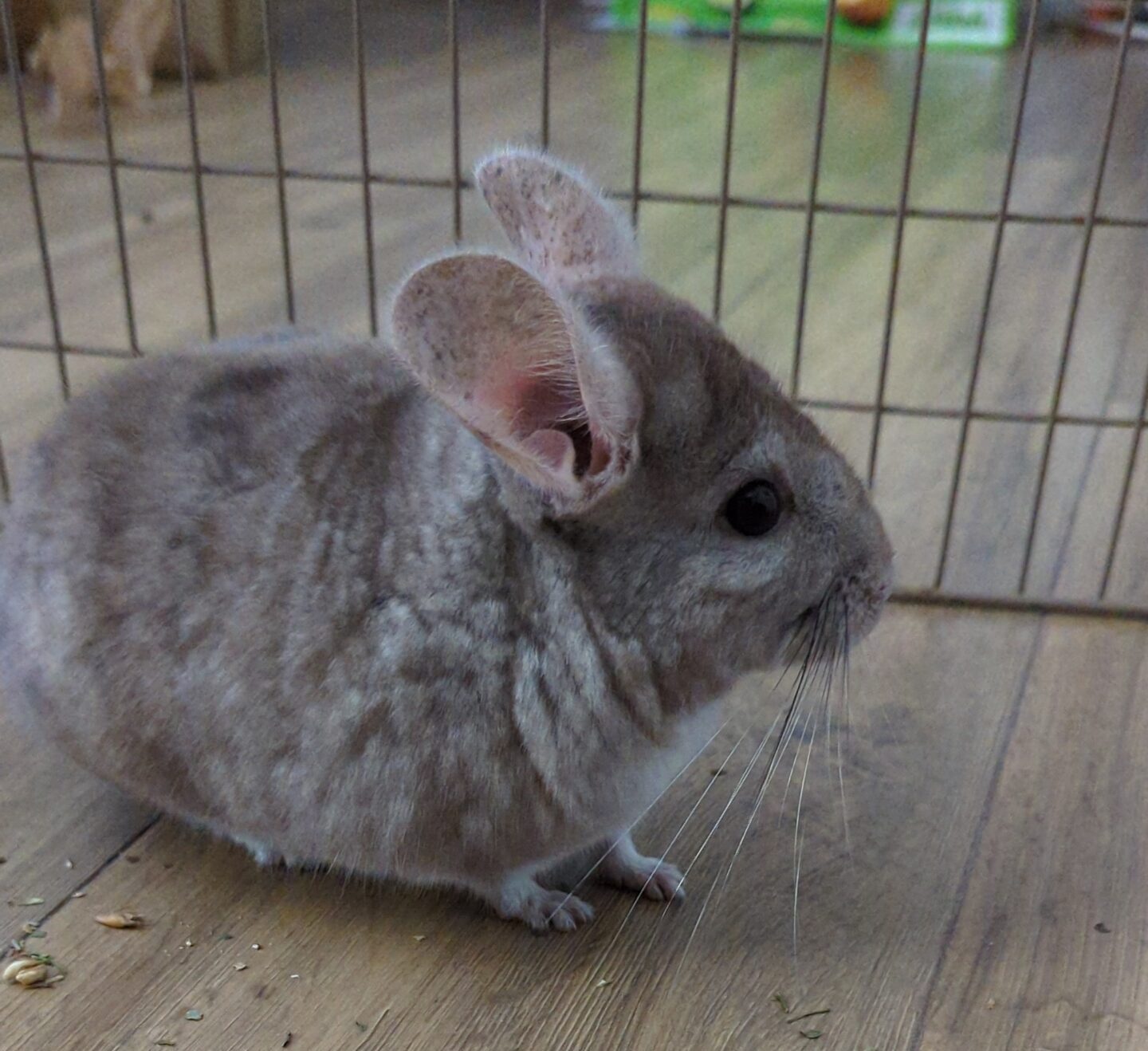
Treatment for bumblefoot
Treatment for bumblefoot includes wound cleaning with a saline solution and antibiotic ointment application to prevent infection. Pain medication may be recommended to alleviate your chinchilla’s discomfort. Additionally, adding a variety of surfaces to the cage and keeping the cage clean and dry can help prevent bumblefoot.
Vitamin and mineral imbalances

Vitamin and mineral imbalances can have serious health consequences for chinchillas. One common issue is calcium deficiency, which can lead to weakened bones and dental problems. On the other hand, excessive calcium intake can cause bladder and kidney stones.
Chinchillas also require a diet that is rich in vitamin C, as they are unable to produce it themselves. Without enough vitamin C, they can develop scurvy, which can cause a range of symptoms, including lethargy, anorexia, and joint pain. Chinchillas also need sufficient amounts of other vitamins, such as vitamin A and vitamin E, as well as minerals like phosphorus and magnesium, to maintain good health.
Symptoms & Prevention
Symptoms of vitamin and mineral deficiencies
- Weakness or lethargy
- Lack of appetite or weight loss
- Diarrhoea or constipation
- Changes in behaviour or activity level
- Abnormalities in coat or skin, such as hair loss or dry skin
- Dental problems, such as overgrown teeth
- Bone deformities or fractures
- Kidney or bladder stones
- Joint pain or stiffness
- Eye problems, such as cloudiness or redness
You can prevent vitamin and mineral deficiencies by providing your chinchilla with a good-quality chinchilla pellet. These pellets are specially formulated with all the vitamins and minerals your chinchilla requires. You will also need to give them lots of Timothy hay.
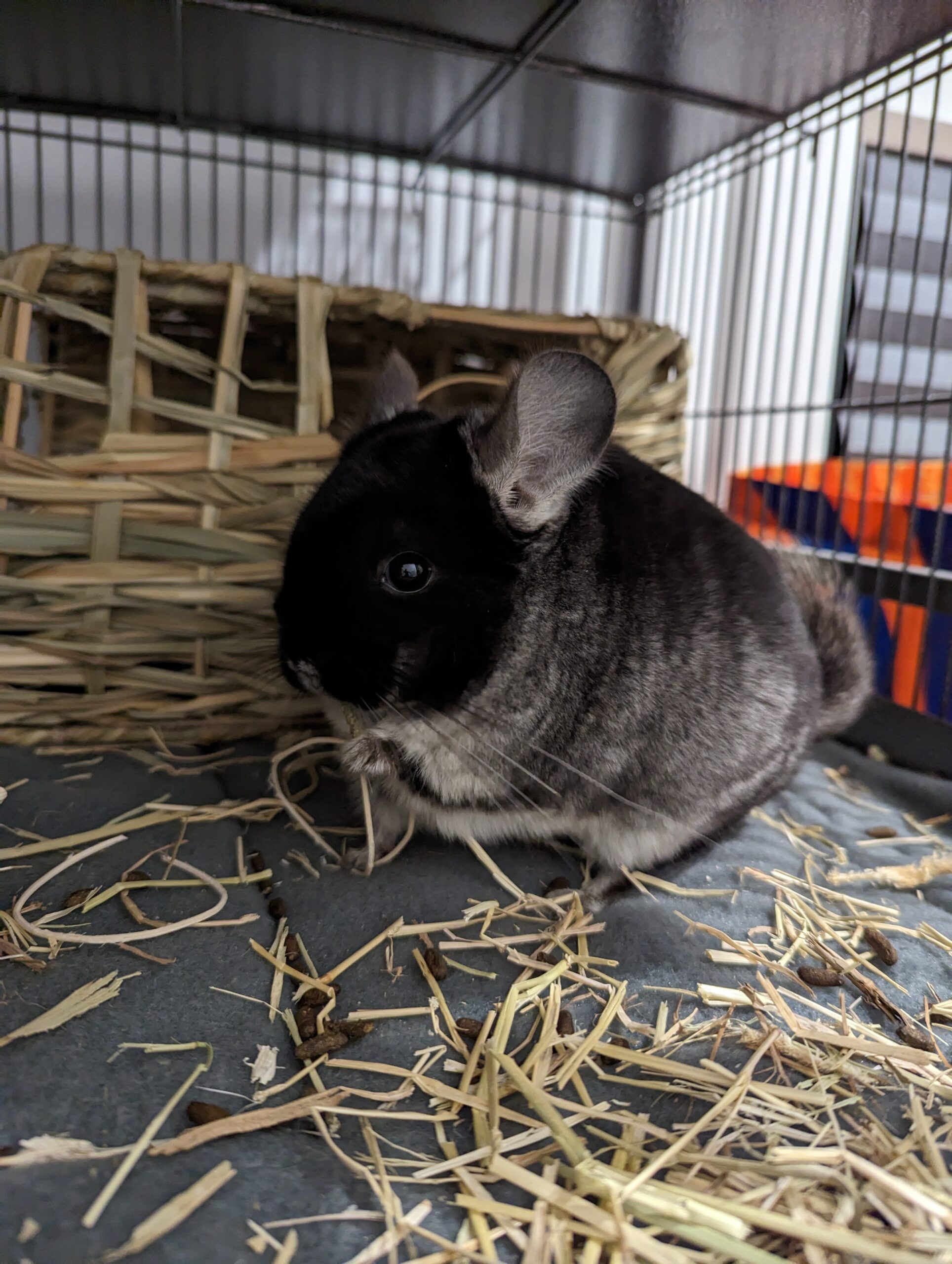
Treatment for vitamin & mineral deficiency
Treatment will depend on the specific nutrient deficiency or excess and the severity of the condition. In general, treatment options may include:
- Changes in diet: Your vet may recommend modifying your chinchilla’s diet to ensure that they are getting the appropriate balance of nutrients. This may involve adding or removing certain foods or supplements.
- Vitamin or mineral supplements: Your vet may recommend vitamin or mineral supplements to address specific deficiencies. It is important to follow your vet’s dosage instructions carefully, as excess intake of certain vitamins or minerals can also be harmful.
- Dental treatment: If a chinchilla has dental problems due to a nutrient imbalance, your vet may need to perform dental work to correct the issue.
- Surgery: In severe cases, such as when a chinchilla has bladder or kidney stones, surgery may be necessary to remove the stones.
Detecting health issues in chinchillas
As a chinchilla owner, it’s essential to be aware of any signs of health issues in your pet. Here are some signs to look out for:
- Changes in appetite or water intake
- Changes in stool consistency or frequency
- Changes in behaviour, such as lethargy or aggression
- Changes in appearance, such as fur loss or skin lesions
- Difficulty breathing or abnormal breathing sounds
- Seizures
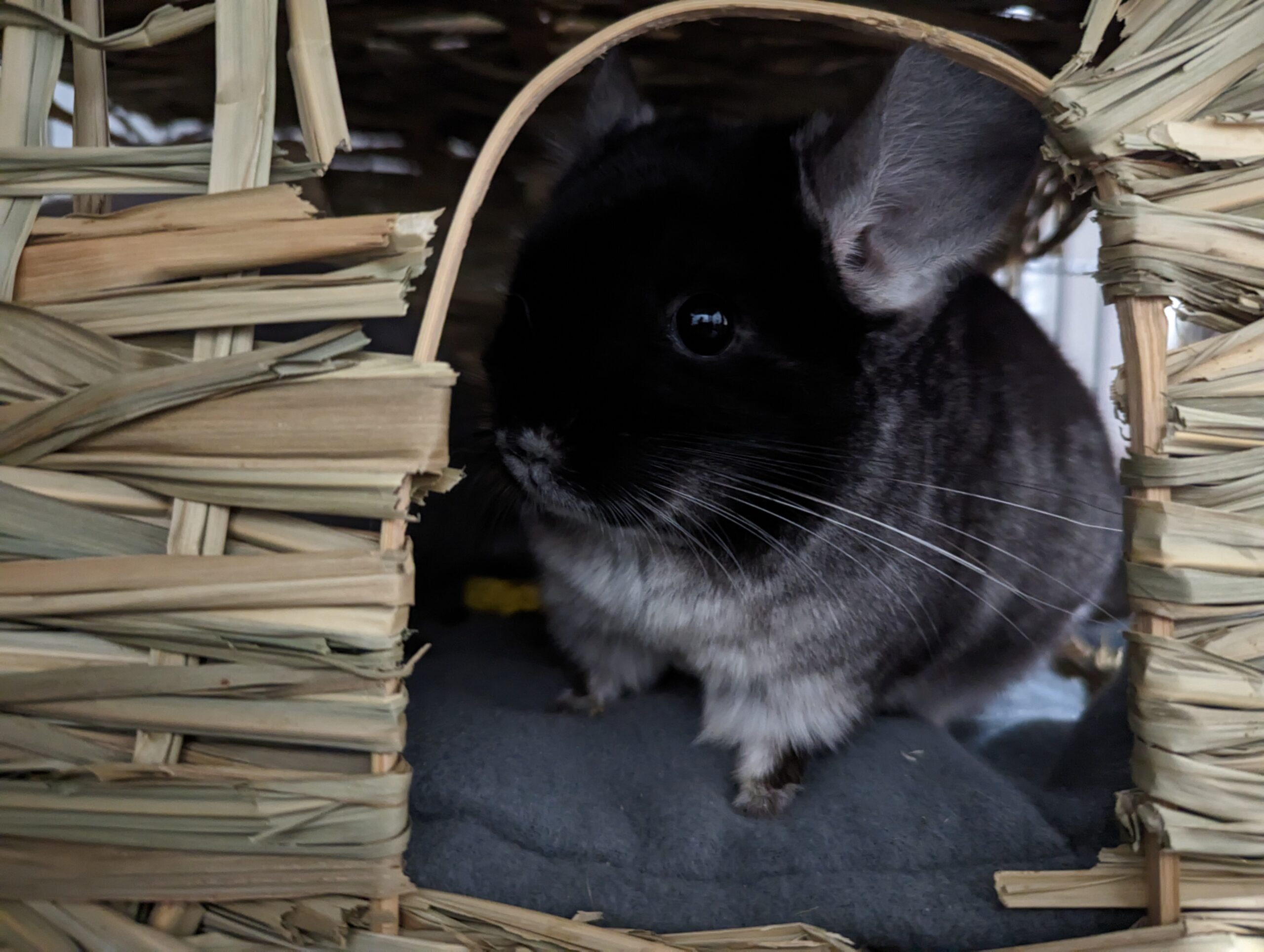
When to seek professional help
If you notice any signs of health issues in your chinchilla, it’s important to seek professional help immediately. Some health issues can quickly escalate and become life-threatening if left untreated.
A veterinarian with experience in treating chinchillas can provide a proper diagnosis and treatment plan to get your pet back to good health. Chinchillas are rodents and are classed as an exotic pet, so you will need to find an exotic vet.
Final thoughts
Chinchillas are wonderful pets that can bring a lot of joy and companionship into your life. However, like all pets, they can experience health issues from time to time. By understanding the most common health issues in chinchillas, taking preventive measures, and being aware of the signs of any potential health issues, you can help keep your chinchilla healthy and happy for many years to come. Remember to seek professional help immediately if you notice any signs of health issues in your chinchilla, even if you think they are minor, as their health can go downhill quite quickly.
You Might Also Like
Do Chinchillas Prefer To Be Alone Or In Pairs?
Chinchillas are adorable, soft, and fluffy animals that make great pets. This article will help you decide whether to keep one or more.
Chinchilla Life Span
Chinchillas are rodents that are often kept as pets. The average lifespan of a domesticated chinchilla is 10 to 15 years, and up to 20 years.
Are Chinchillas Considered A Low Maintenance Pet?
Many people might be thinking about getting a chinchilla and wondering if they are a low-maintenance pet; here we discuss if they are.
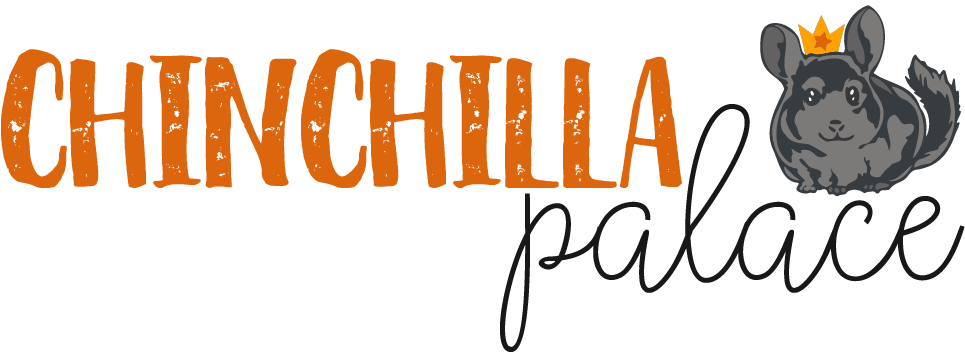
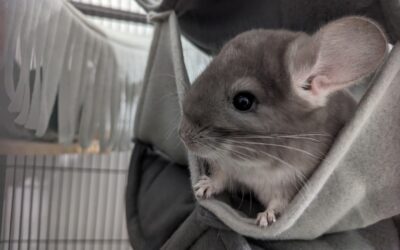
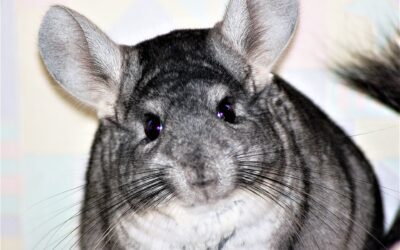
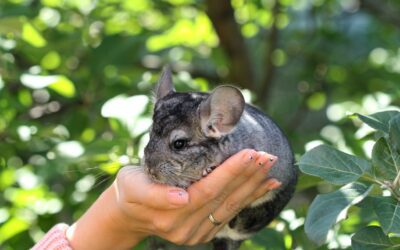
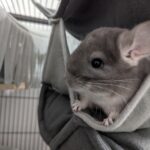
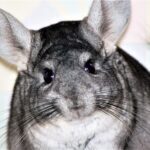
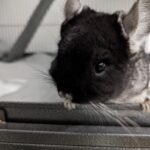

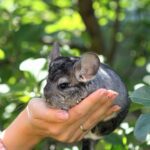
Recent Comments